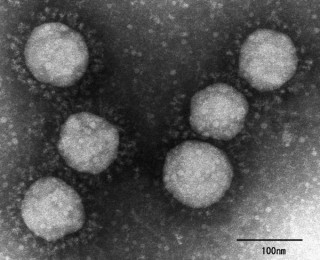Loading
Search
▼ Japan Confirms 2nd Case Of Omicron Coronavirus Variant
- Category:Event
Japan confirmed its second case of the Omicron variant of the novel coronavirus Wednesday, the government said as it announced tougher travel restrictions to prevent the spread of the potentially highly contagious strain.
The transport ministry said it had asked airlines to stop accepting reservations for inbound international flights, while Chief Cabinet Secretary Hirokazu Matsuno said Japan will deny entry to all foreigners from 10 African countries feared to have outbreaks of the variant.
A man in his 20s who arrived at Narita airport near Tokyo on Saturday after recently staying in Peru was found to be infected with the Omicron variant, Matsuno told a press conference.
Japan confirmed its first case of infection involving the variant, a diplomat in his 30s traveling from Namibia, a day earlier. The man from Peru, who is currently in quarantine at a medical facility, was not in close contact with the diplomat, according to a government source.
Scientists are rushing to discover whether the highly mutated strain is more transmissible than the existing Delta variant of the coronavirus or able to evade immunity from vaccines or previous infections.
The Omicron variant was first reported by South Africa last week and has been discovered in a number of African and European countries as well as Canada, Israel and Hong Kong.
The Ministry of Land, Infrastructure, Transport and Tourism's request to stop taking reservations for inbound international flights means all Japanese citizens and foreign residents will effectively be locked out of the country.
Japan will also deny re-entry to all foreigners, including residents with long-term visas, who have recently been to Angola, Botswana, Eswatini, Lesotho, Malawi, Mozambique, Namibia, South Africa, Zambia and Zimbabwe.
The measure will come into effect Thursday and remain in place "for the time being," Matsuno said. Japan has already banned new entries of foreigners from around the world.
Exemptions will be made in "special circumstances" involving foreign spouses and children of Japanese citizens, diplomats and humanitarian cases.
But Matsuno said Japan is narrowing eligibility for such exemptions as part of efforts to keep out the Omicron variant and has stopped accepting government-funded international students or participants in the Japan Exchange and Teaching Program.
The World Health Organization has designated the strain a "variant of concern," warning it is likely to spread globally and poses a "very high" risk.
On Tuesday, however, the WHO urged against implementing blanket travel bans, saying they will not only be ineffective in preventing the global spread of the variant but also "place a heavy burden on lives and livelihoods."
In addition to the ban on new entries of foreigners, Japan has imposed tougher quarantine measures for Japanese citizens and foreign residents who have recently been to certain countries or regions, requiring them to spend up to 10 days of their two-week isolation periods in government-designated facilities.
Starting Thursday, people returning from Nigeria, Portugal, Spain and Sweden will need to stay three days in government-designated facilities due to heightened concerns over the Omicron variant, the Foreign Ministry said.
- December 2, 2021
- Comment (0)
- Trackback(0)


